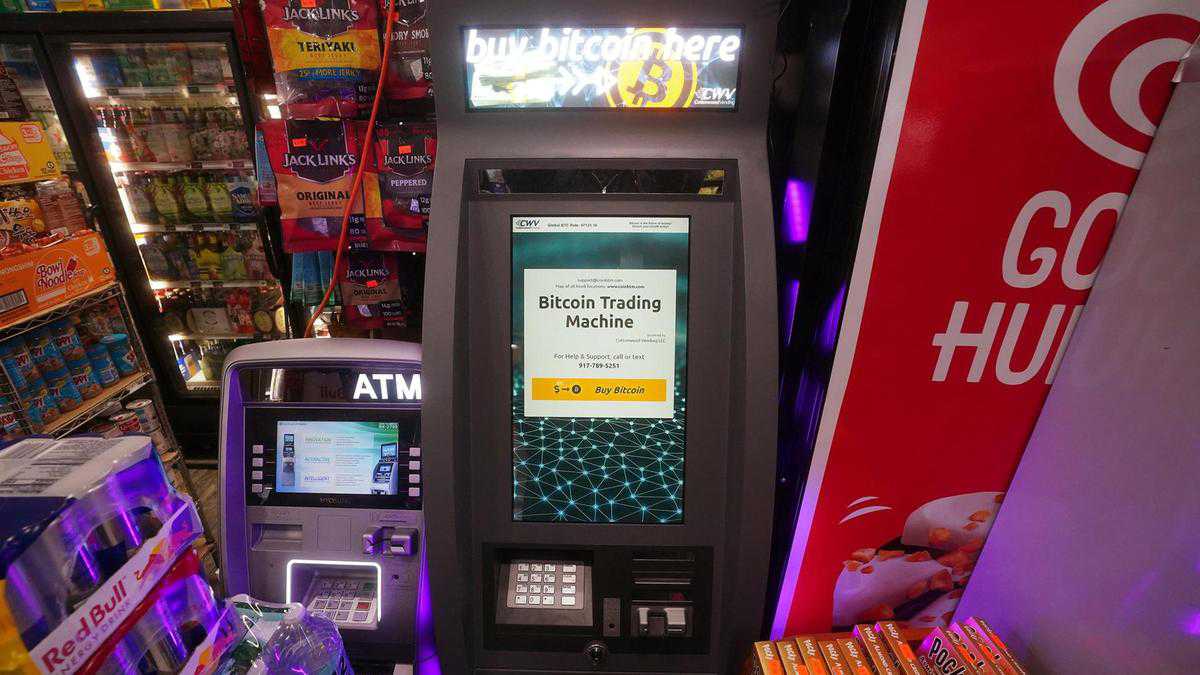Bitcoin exceeds $50,000 for the very first time
17 February, 2021

The seemingly unstoppable rise of Bitcoin continued Tuesday with the price tag on a single unit of the digital currency rising above $50,000 for the very first time.
The same Bitcoin twelve months ago would have cost $10,000. The purchase price is up almost 200 per cent in the last three months alone.
Bitcoin is rallying seeing as more companies signal the volatile digital currency could eventually gain widespread acceptance as a way of payment. Almost all those who have acquired Bitcoin have cured it as a commodity, like precious metal, with few places accepting it in trade for goods or providers.
Companies have already been wary because of Bitcoin’s volatility and its own use by celebrations who would like to avoid the traditional bank operating system for myriad factors. On Tuesday, the purchase price crossed and recrossed the $50,000 barrier at least a half dozen times before 10am.
Last Monday, even so, the electric car company Tesla sent a tremor through the digital foreign currency markets, saying that it had been shopping for $1.5 billion in Bitcoin within a fresh investment strategy, and that it would soon be accepting Bitcoin in trade for its cars.
Then Blue Ridge Lender of Charlottesville, Virginia, said that it could become the initially commercial bank to supply access to Bitcoin at its branches. The regional lender said Wednesday that cardholders could acquire and redeem Bitcoin at 19 of its ATMs.
BNY Mellon, the oldest lender in the US, followed a day later, saying it could include digital currencies found in the services it provides to clientele. MasterCard said it would start supporting “go for crypto currencies” on its network.
While most expect a slow development towards widespread usage of bitcoins as currency, Richard Lyons, a financing professor at the University of California at Berkeley, says it is inevitable. Lyons predicts Bitcoin and other digital currencies “will become transactional currencies progressively over another five years. It’s certainly not going to happen over night,” he said.
Lee Reiners, who teaches fintech and cryptocurrency lessons at Duke University University of Law, said BNY Mellon’s approach is practical because “nowadays there are numerous high net-worth people and investment cash embracing crypto as an asset class to come to be put into their portfolio.”
But Mr Reiners believes corporations will remain hesitant to accept Bitcoin for repayment because of its volatility.
“If you were a merchant, why would you accept repayment in an asset that could be worth 20 % less a day once you receive it?,” Mr Reiners said within an email.
Investors will need to grapple with that volatility aswell. The price of Bitcoin features soared and dipped since its debut on the futures marketplace in 2017. This past year, Bitcoin distributed for below $10,000. Those fluctuations, analysts warn, could wreak havoc on a company’s important thing and deter investors.
Assuming Tesla bought Bitcoin for the volume-weighted average selling price of $34,445 in January, the business is sitting on an increase of about 38 % with its investment. But in the regulatory announcement unveiling the purchase, Tesla warned about the volatility of Bitcoin, its reliance on technology because of its use and having less a centralised issuer, for instance a government.
“While we intend to take all reasonable steps to secure any digital assets, if such threats are realised or perhaps the measures or handles we create or perhaps implement to secure our digital property fail, it could result in a partial or perhaps total misappropriation or lack of our digital possessions, and our financial condition and operating results may be harmed,” Tesla stated in the filing.
“Tesla is going to have to be careful and comprehensive in accounting because of its Bitcoin purchase on its books,” said Anthony Michael Sabino, a professor of legislation in St John’s University. “Like any other personal asset apart from actual cash, it could fluctuate.”
There appears to be some people reluctance among traditional companies regarding Bitcoin, at least simply because an investment vehicle.
Throughout a recent conference phone with traders, General Motors leader Mary Barra explained her company had not any plans to purchase Bitcoin, but would continue to “monitor and examine” potential utilization of digital currency.
“If there’s strong customer demand for it later on, there’s little or nothing that precludes us from doing that,” Ms Barra said.
Source: www.thenationalnews.com
